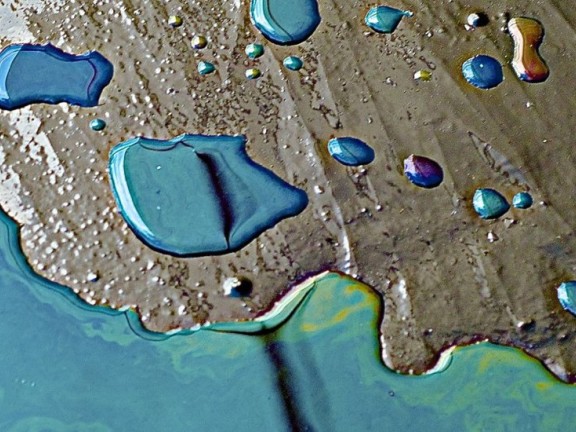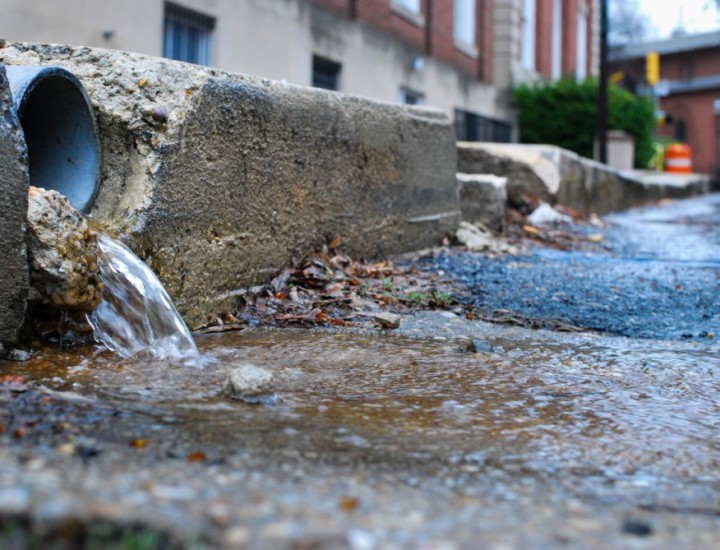CAP Celebrates New Maryland Law to Increase Water Quality Protection

Chesapeake Accountability Project Celebrates New Maryland Law to Increase Water Quality Protection and Enforcement
Media Contacts: A.J. Metcalf, Chesapeake Bay Foundation, 443-482-2023 or ametcalf@cbf.org, or
Brian Gumm, Center for Progressive Reform, 202-747-0698 ext. 2 or bgumm@progressivereform.org
(ANNAPOLIS, MD) — The Chesapeake Accountability Project (CAP) is encouraged that a new law will go into effect in July requiring the Maryland Department of the Environment (MDE) to conduct more frequent enforcement and inspection activities of industrial and municipal facilities to prevent water pollution.
The bill—SB492/HB649—passed the General Assembly with bipartisan support in late March, and Gov. Larry Hogan enabled it to go into law without his signature today.
This legislative victory was accomplished through the work of a broad coalition of environmental organizations. It came on the heels of a multi-year effort on advocacy around zombie permits by ShoreRivers and research developed by the Center for Progressive Reform. Blue Water Baltimore, Waterkeepers Chesapeake, and the Environmental Integrity Project drew attention to issues of noncompliance and provided input into this year’s successful effort. Chesapeake Bay Foundation worked to help the public understand how the decline in water quality enforcement activities imperils Bay cleanup efforts, while Chesapeake Legal Alliance pursues high-profile litigation to hold pollution violators accountable.
In March, CAP released a report detailing the long-term decline of water quality-related inspection and enforcement activities being conducted by MDE. That decline accelerated during the previous six years. CAP is a group of environmental organizations that includes the Center for Progressive Reform, Environmental Integrity Project, Chesapeake Legal Alliance, Chesapeake Bay Foundation, and Choose Clean Water Coalition.
The report found the 75 enforcement actions taken by MDE’s water administration against pollution permit violators last year was far below the annual average of 168 actions going back to 2001. MDE took 67 percent fewer water quality enforcement actions during the Hogan administration compared to the previous six years, according to the report. Factories, wastewater treatment plants, and agricultural processing plants are examples of facilities that hold pollution permits that limit the amount of nitrogen, phosphorus, and other Chesapeake Bay contaminants the facilities can discharge into the environment.
“Through the Scorecard report, we provided a comprehensive accounting of Maryland’s declining ability to enforce water pollution permits and regulations,” said Katlyn Schmitt, policy analyst at the Center for Progressive Reform. “Our goal was to bring that to an end. We see this new law as a strong start toward correcting this pervasive problem. We’ll be following the state’s actions closely as the policies are implemented.”
The new law requires MDE to:
- Inspect facilities deemed in significant noncompliance with their discharge permits once per month.
- Starting in 2023, inspect facilities with administratively continued permits more than one year old, also known as zombie permits, every 90 days until a new permit is issued.
- Clear the backlog of zombie permits by the end of 2026.
- Make public and notify Senators and Delegates about non-complying permit holders in their districts.
“The Chesapeake Accountability Project report released this spring documented a steep drop off in water pollution enforcement in Maryland, both under the Hogan Administration and over the last two decades in critical areas,” said Jennifer Duggan, Deputy Director of the Environmental Integrity Project. “This is totally unacceptable when Maryland is facing a looming deadline for cleaning up the Chesapeake Bay, and this bill should push the Maryland Department of the Environment to step up its inspections and enforcement.”
The CAP report also detailed how there are more than 100 zombie pollution permits.
“Zombie permits don’t account for increasing pollution in waterways caused by stronger storms and continuing development that occur after the permits expired,” said Chesapeake Bay Foundation’s Maryland Senior Scientist Doug Myers. “Increased inspections for facilities with expired pollution permits will provide needed oversight and the new law will finally clear the dozens of zombie permits, many of which don’t meet today’s water quality standards. If we’re going to meet the goals of the Chesapeake Bay cleanup in Maryland then we must ensure pollution permit limits are being followed.”
While MDE is tasked with inspecting permitted facilities that discharge water pollution, several high-profile failures to adhere to pollution permits were uncovered recently after nonprofit groups including Blue Water Baltimore and ShoreRivers flagged issues for the department. Specific problems were later revealed at Baltimore’s wastewater treatment plants and at the Valley Proteins rendering plant on Maryland’s Eastern Shore following MDE inspections.
This new law aims to address declining MDE oversight by requiring more frequent inspections at facilities not complying with permit limits to identify violations before they significantly harm the environment.
“This new law will dramatically reduce pollution from reaching Maryland waterways and communities,” said Evan Isaacson, Director of Policy and Research for Chesapeake Legal Alliance. “We work closely with Riverkeepers and other watershed and community groups who are seeing firsthand the harm of excessive pollution in communities near Baltimore, on Maryland’s lower Eastern Shore, and elsewhere. This law provides needed changes to how Maryland safeguards public health and prevents such pollution.”
###
The Chesapeake Accountability Project (CAP) comprises five nonprofit organizations, including the Center for Progressive Reform, Chesapeake Bay Foundation, Chesapeake Legal Alliance, Environmental Integrity Project, and Choose Clean Water Coalition. Collectively, these organizations work to reduce bay pollution attributable to weak water pollution permits and lack of government enforcement in the Bay region, particularly in Maryland. For more about CAP, visit our website.
